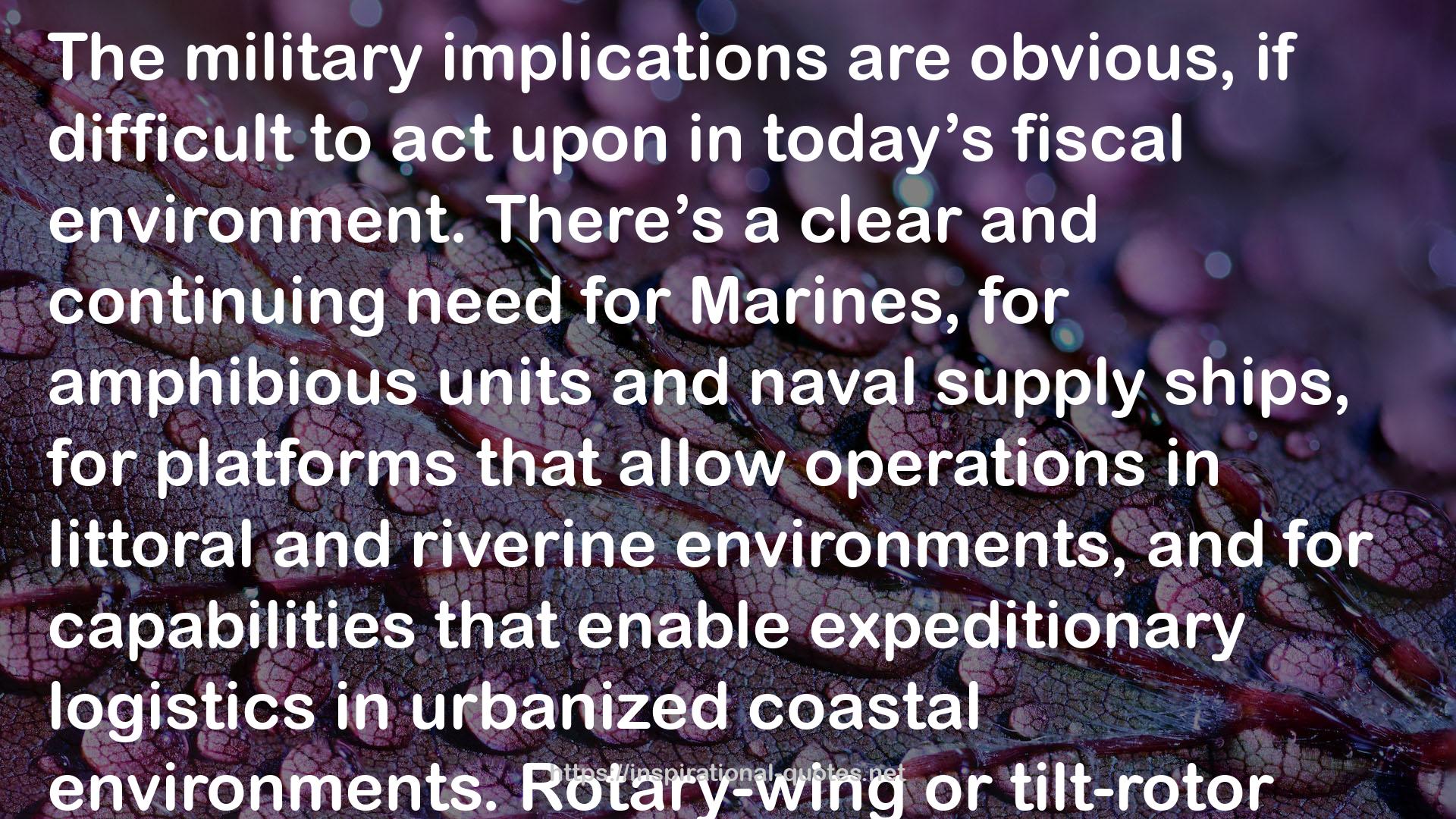" The military implications are obvious, if difficult to act upon in today’s fiscal environment. There’s a clear and continuing need for Marines, for amphibious units and naval supply ships, for platforms that allow operations in littoral and riverine environments, and for capabilities that enable expeditionary logistics in urbanized coastal environments. Rotary-wing or tilt-rotor aircraft, and precise and discriminating weapons systems, will also be needed. There’s also a clear need to structure ground forces so that they can rapidly aggregate or disaggregate forces and fires, enabling them to operate in a distributed, small-unit mode while still being able to concentrate quickly to mass their effect against a major target. Combat engineers, construction engineers, civil affairs units, intelligence systems that can make sense of the clutter of urban areas, pre-conflict sensing systems such as geospatial tools that allow early warning of conflict and instability, and constabulary and coast guard capabilities are also likely to be important. The ability to operate for a long period in a city without drawing heavily on that city’s water, fuel, electricity, or food supply will be important as well, with very significant implications for expeditionary logistics. I go into detail on all these issues, and other military aspects of the problem, in the Appendix. "
Image for Quotes

SOME TOPICS